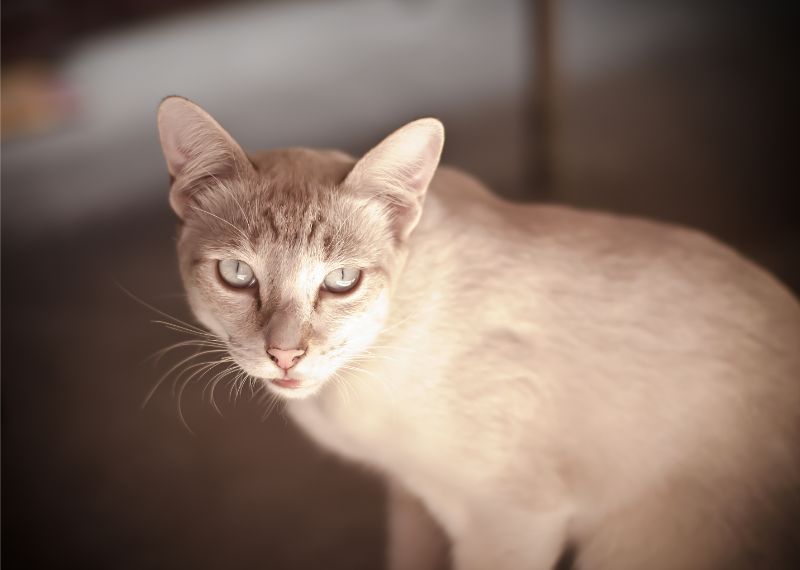A Kitty Conundrum: Cats and Kidney Disease

Here at All Creatures Veterinary Hospital of Brooklyn, we are pretty impressed with the animal body. The complex workings and relationships between anatomy and physiology are truly incredible. When you really start to look at everything that goes into making a functional body, it’s amazing that things work flawlessly so very often.
The renal system is one of those complex body systems that our pets rely on for overall health. Sometimes, however, good kidneys go bad and problems arise. The feline species in particular is prone to trouble.
While cats and kidney disease are a common combination, that doesn’t mean there’s no hope.
The Amazing Kidney
The kidneys have a pretty big job to do. They are the recipients of the body’s entire blood volume which circulates through them endlessly, day and night.
The kidney has multiple roles, including:
- Filtering waste products of metabolism
- Maintaining appropriate hydration
- Controlling electrolyte levels
- Keeping blood pressure normalized
- Stimulating red blood cell production
- Maintain calcium and phosphorus balance for healthy bones
If any of these jobs are not done properly, the result is a very sick patient.
Cats and Kidney Disease
Cats and kidney disease can occur in two main ways.
- Sometimes kidney problems are acute, usually caused by an injury or illness. For example, the ingestion of a toxin like a lily plant, an infection, or obstruction of the lower urinary tract by a bladder stone or urinary crystals.
- Most kidney disease in cats is chronic. This is more of a wear and tear type scenario that causes the kidneys to become less functional over time. Some cats may also have congenital kidney issues that can further speed up the breakdown of the kidneys.
Kidney disease in cats often presents with symptoms including:
- Weight loss
- Increased drinking
- Excessive urination
- Dilute urine
- Decreased appetite
- Dull or unkempt haircoat
- Vomiting and/or diarrhea
When a cat has underlying kidney disease, often they seem okay for a long time. They may suddenly appear sick, though, if they become dehydrated. Their bodies are simply unable to bounce back, resulting in what is termed a uremic crisis. This often happens during a time or stress or illness.
Giving Your Cat’s Kidneys a Leg Up
Kidney disease and cats are a common combination, and while it is not a curable problem, it is one that we can often manage fairly successfully.
It is vital that we play a proactive role when it comes to this and other kitty diseases. If you think that something isn’t right with your pet, please call us for an appointment right away so that we can diagnose and treat appropriately.
It is also important that we see your pet routinely for wellness visits, especially as part of your senior pet care routine. Wellness visits often help us to identify problems long before they become problems.
If your pet is diagnosed with kidney disease, there are things that we can do to keep them happy and comfortable often for quite some time. You will need to:
Encourage hydration – Keeping the body well hydrated helps the kidneys to not have to work so hard. Even minor dehydration can send a cat with kidney disease into a spiral. Encouraging fluid intake can be very effective. Offer fresh, clean water at all times and encourage your cat to drink more with the use of water fountains, canned food, or even the option of water flavored with a little broth or tuna juice. Some cat owners may be shown how to administer fluids under the skin at home if necessary.
Follow nutrition recommendations – Special nutritional recommendations for cats with kidney disease can make a big difference in managing the problem. We may recommend a prescription diet that has been formulated to help maintain a healthy weight and appetite while decreasing the workload of the kidney.
Monitor for complications – Cats affected by kidney disease may also suffer from poor appetite, high blood pressure, anemia, or abnormal potassium levels. Frequent monitoring at home and in our hospital can help to identify and treat these associated issues.
Cats and kidney disease may go together, but that doesn’t mean that there isn’t a fighting chance. Both the feline species and the kidney are pretty resilient, and there is a lot we can do if we work together as a team to keep both of them happy.

